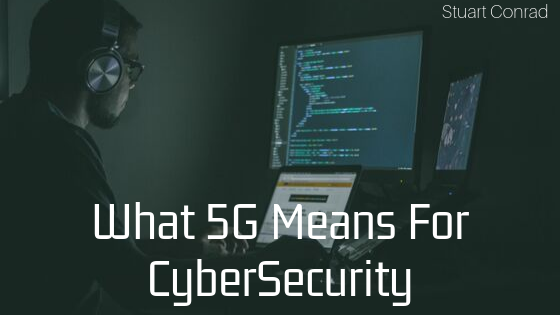5G cellular networks are on the rise, and while 5G will allow for many new opportunities in the business world, it will also bring a new wave of cybersecurity issues. The main selling point of 5G is it’s incredibly fast internet speeds. With these faster internet speeds, smart devices will have an easier time connecting to the web versus today’s inconsistent performance. However, many of these devices are insecure and relatively easy to hack. As 5G becomes more prominent, other smart devices will emerge such as robocars or work-place specific gadgets, which also opens more doors for security issues.
Already, smart devices are all around us. More and more of our everyday products, such as door locks and thermostats, are being replaced by smart versions of themselves. These devices are connected to the Internet of Things (IoT), and they’re the perfect target for hackers. For example, a casino in Las Vegas was breached by hackers who snuck in through a “smart” thermometer. By gaining access via a thermometer, hackers gain an opportunity to get their foot into the door of an organization’s network, possibly gaining access to private information by taking over other devices and moving into the core business.
With IoT devices becoming more prominent, there’s also the potential for physical consequences to occur when a business is hacked. These are known as cyber-kinetic attacks, and they’re something that happens more than one might realize. Physical functions within buildings such as air conditioning, power flow and door locks are becoming increasingly more controlled by smart devices, and if they’re hacked there’s a chance that they can be “weaponized”. While this might sound extreme, even disabling a device with malware can cause major disruptions in business.
A popular form of cyber attack is a DDoS attack or a distributed denial-of-service attack. DDoS attacks involve hackers taking a company’s website offline, or disrupting its connection by flooding it with traffic. This is done by using a botnet, which involves hackers taking over a massive amount of other devices and using them to attack a business. Botnets have historically been made up of infected computers, but as technology has evolved, hackers have been able to create them from IoT devices. 5G will make this even easier, as more and more devices begin to connect to the ever-growing network.
It’s important to keep cybersecurity in mind as 5G becomes more prominent in our lives. 5G has numerous great perks that will change the way many businesses operate over the coming years, but with this evolution of technology will come potential risks. It’s important that smart devices are kept up to date, and are constantly monitored to ensure potential threats cannot breach your business or your personal life.

